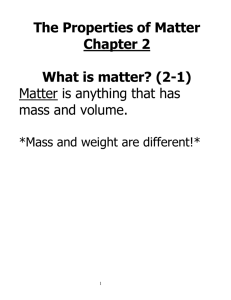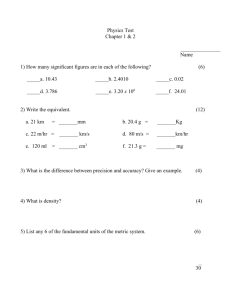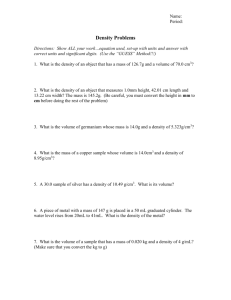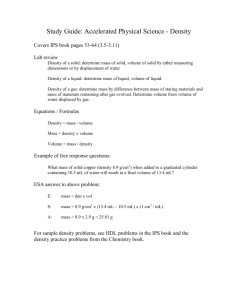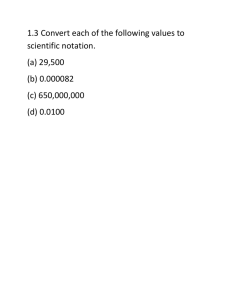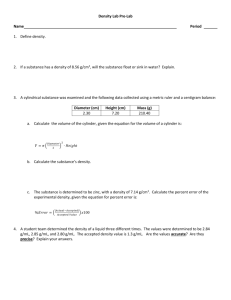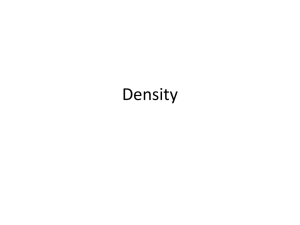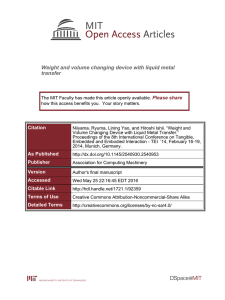Chemistry Semester Exam Review 2012 A student must determine
advertisement
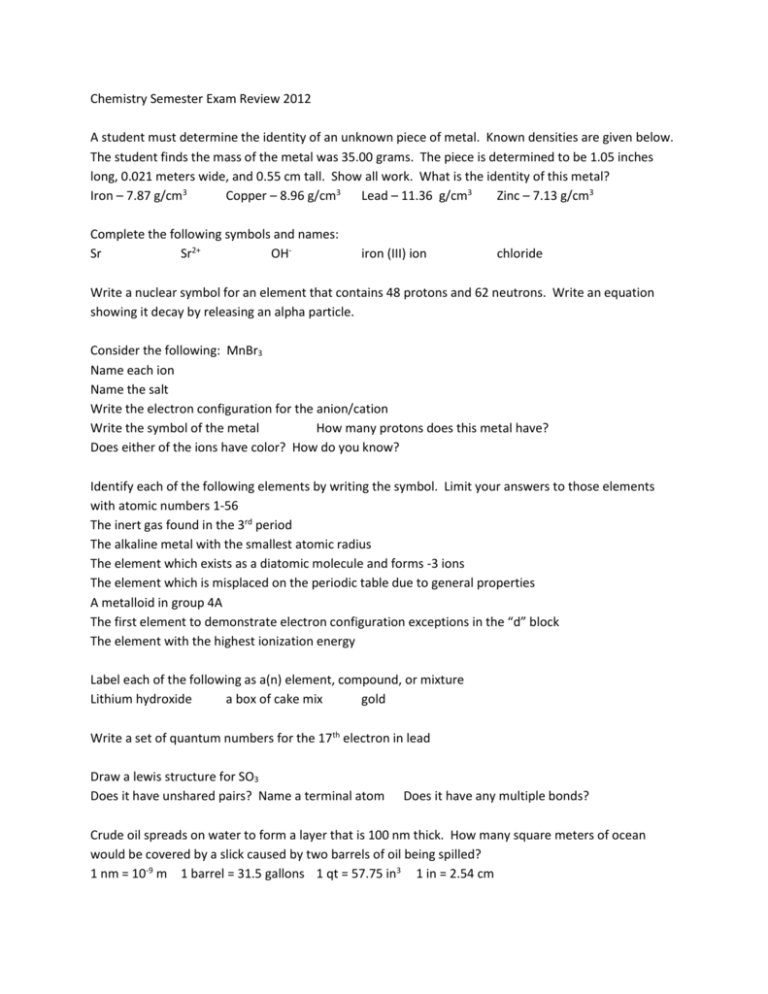
Chemistry Semester Exam Review 2012 A student must determine the identity of an unknown piece of metal. Known densities are given below. The student finds the mass of the metal was 35.00 grams. The piece is determined to be 1.05 inches long, 0.021 meters wide, and 0.55 cm tall. Show all work. What is the identity of this metal? Iron – 7.87 g/cm3 Copper – 8.96 g/cm3 Lead – 11.36 g/cm3 Zinc – 7.13 g/cm3 Complete the following symbols and names: Sr Sr2+ OH- iron (III) ion chloride Write a nuclear symbol for an element that contains 48 protons and 62 neutrons. Write an equation showing it decay by releasing an alpha particle. Consider the following: MnBr3 Name each ion Name the salt Write the electron configuration for the anion/cation Write the symbol of the metal How many protons does this metal have? Does either of the ions have color? How do you know? Identify each of the following elements by writing the symbol. Limit your answers to those elements with atomic numbers 1-56 The inert gas found in the 3rd period The alkaline metal with the smallest atomic radius The element which exists as a diatomic molecule and forms -3 ions The element which is misplaced on the periodic table due to general properties A metalloid in group 4A The first element to demonstrate electron configuration exceptions in the “d” block The element with the highest ionization energy Label each of the following as a(n) element, compound, or mixture Lithium hydroxide a box of cake mix gold Write a set of quantum numbers for the 17th electron in lead Draw a lewis structure for SO3 Does it have unshared pairs? Name a terminal atom Does it have any multiple bonds? Crude oil spreads on water to form a layer that is 100 nm thick. How many square meters of ocean would be covered by a slick caused by two barrels of oil being spilled? 1 nm = 10-9 m 1 barrel = 31.5 gallons 1 qt = 57.75 in3 1 in = 2.54 cm Consider 12.0 grams of a mixture containing the following items (along with some properties). A – solid (melting point 235oC, density 2.22 g/cm3 ) B- solid (melting point 135oC, density 1.55 g/cm3) C- solid (melting point 100oC, density 0.65 g/cm3) D- liquid (none of the solids are water soluble, boiling pt – 100oC) Describe how you could separate this mixture using common laboratory/household items Iridium (Ir with an atomic weight of 192.217) consists of two isotopes occurring naturally. One of these isotopes is Ir-191 and accounts for 37% of the Ir found on earth. What is the percentage and mass number of the other isotope? For each of the following, label it as a physical or chemical change: Crushing a rock with a hammer Melting Ice A rotting “road kill” How many significant figures in the following numbers? 1.005 x 107 0.00104 20500 Draw a Lewis structure for the following: ClO3Name a terminal atom. Are there any unshared electron pairs? Consider the following molecule: What is it’s molecular formula? What type of bonds are present? How many of each bond type? Name the following compound: CCl4
